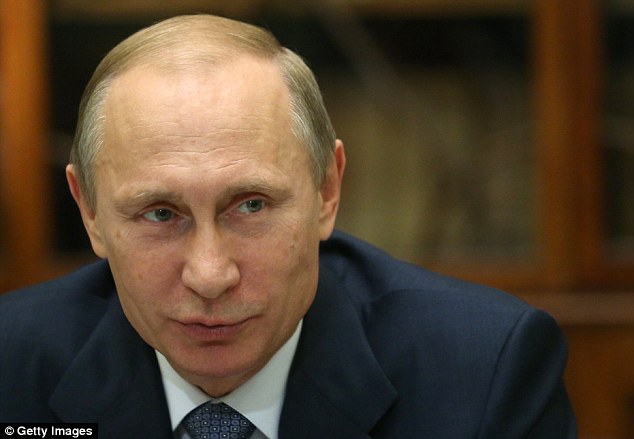The Midwest After Zhirinovsky
Considering all the turmoil the Midwest has undergone during this timeline, I'm surprised there hasn't been a spin-off dealing the . I felt it would be very interesting to explore how Ohio, Michigan, and elsewhere have developed since the end of Zhirinovsky. Here's my attempt to fill in the blank:
huffingtonpost.com
Vegetables Blossoming in America's Grozny by
Dennis Hayes
Dec 15, 2006
Brightmoor is a neighborhood that has come to represent many things over the years. In its heyday, it was a working class neighborhood full of autoworkers, and a testament to the strength of America's middle class.
"That used to be a playground", former resident Edna Little said as she pointed to a greenfield covered in weeds ,"the things from your childhood are never really far from your mind".
But by 2004, it came to represent other things. When Detroit became the largest city to go backrupt that January, Democratic Presidential Candidate Dick Gephardt toured Brightmoor, turning it into a symbol of the Motor City's economic collapse. He also made one of the greatest gaffes in of that election year, calling it "America's Grozny", or more specifically, "An area of America that resembles Grozny, but not because of a genocide, but because of policies that have hurt the American middle class". 60 sq mi., or nearly half the city, is like Brightmoor, nearly empty of people.
"When I Gephardt say that I felt a little depressed" said Little, a little dejected "Of course, it offended Chechens too. They pretty much took over Hamtramck, and they vote more than native-born residents, but most people didn't realize that until Gephardt opened his mouth and lost the primary."
Little, wants to put Brightmoor back on the map, this time, in another strange parallel to Grozny, as a farm. Little, and her business, Little Foods wants to redevelop the area to grow organic vegetables to provide fresh produce to the people in the community, and get in the growing organic foods market. She is here to check on her current bed, as well as supervise a bunch of volunteers tear up the remains of her house.
"It gives people healthy food, the land is cheap and vacant, so I figured why not," said Little.
The former autoworker's transition to urban farmer began during the 1997 Depression, but the roots (no pun intended) of it were laid during her childhood.
"My grandma was originally a sharecropper," she claimed, "but she never truly left the farm. She would always grow some tomatoes, some broccoli, some carrots, some sweet potatoes on a little bed in the backyard. I of course helped her out sometimes. I never expected I'd be making a living the way she did back in Georgia."
She left Brightmoor, as did other families, and found a job assembling engines for the Cadillac de Ville at the GM Hamtramck facility. Like many Detroiters, she assumed she would work for a few decades, raise her two sons, get a pension, and retire to Florida. The closing of the facility in 1998 stunned and horrified her.
"All my coworkers were scared, many of them complained about how their hard work came to nothing. I was pretty quiet, but that was more because of shock," she said as passed by the soon to be demolished house.
Even more troubling for them would be the Crop Shortage of 1998, the result of hundreds of thousands of migrant farm workers fleeing California.
"We take a lot things for granted in America," she said as we passed by the soon to be demolished house, "from the food we eat, to the people who grow it for us. Before 1998, my coworkers wanted the Mexicans gone. It took them leaving for a few weeks to make us understand hunger."
Many of Little's coworkers found themselves both without jobs and without the means to pay for fresh produce. But unlike her coworkers, Little found she had some skills needed to not only feed herself, but dozens of others.
"It was good that my sons could stomach vegetables and potatoes," she said with a chuckle, " or they would have starved. But I first realized I could probably sell my surplus after reading that Big Macs had suddenly cost 12 dollars."
During that first year, Little was able to make nearly half her wage at GM selling vegetables to her neighbors.
"Of course some of them had no money," she said sadly, "so instead I offered them to do a household chores. One of my neighbors was a carpenter, so I got a new dinner table in exchange for a bag of green beans. I tell people to this day that it was the best deal I ever made!"
Of course, when agricultural market recovered in 99, Little found herself forced onto welfare, and eventually had to sell her car and walk her children to school. It wasn't until 2001 that she was able to find steady work in construction.
"I guess I shouldn't be ashamed since a lot people had to stand in line, but holding out longer than my neighbors did made it harder for me to accept a welfare check", Little muttered.
But in 2005, a few new supermarkets opened in nearby Southfield, giving Little a new lease on a life she had grown to enjoy.
"The managers of those supermarkets claimed that they already had organic produce," said Little ,"but what didn't admit to having was Detroit produce."
Currently, Little Foods supplies produce to nearly 10 supermarkets in the Detroit area, as well as donations to soup kitchens and high schools, one of nearly hundreds of people working to turn the city into a large farm. Little recently signed a contract with another supermarket, and will grow her produce on 50 acres of the largely abandoned Brightmoor district, bringing it 10 news jobs and development. I asked her if she felt that what she was doing was bringing Detroit back.
"Of course," she beamed ," Mayor Cockrel would like to take credit for this, but city depends not on the people in power, the people on the street who choose to remain. Me and others have chosen not to give up on city, thus it will rise again one day".
New York Times
Sales of EV2 drop in the Third Quarter, Amid Reports of Record Sales, ZEV Mandate Threatened
April 21, 2006
A year ago, to much great fanfare, GM launched the EV2, a sleek, four-door electric sedan that could travel 120 miles before needing to be recharged, a successor to the two-seater EV1. The $48,000 ($44,000 with the Clean Car Tax Credit) price tag notwithstanding, the car symbolized a new era for the nearly bankrupted automaker. By the end of the year, GM paid off its federal loans, sold more cars than it had in 1997, and became the best selling American automaker in China and the UIS, all amidst the Dubai crisis of last August. The EV2 had sold nearly 10,000 cars during that year, requiring overtime at the Hamtramck facility. GM again regained its dominance in the global market.
"People thought another war was going to breakout," said Joseph Moore, editor of EVWorld.com, a top website for electric car news, "so naturally people began stocking up on them".
GM's Third Quarter sales have again broke previous records, with nearly 1.9 million cars sold. However, despite predictions of 3,000 cars being sold, only about 1,800 EV2 were sold this quarter.
"Gas prices drop," said Moore with disgust, "and suddenly everyone wants to buy an SUV. On a normal day, people forget the law of supply and demand.
The EV2 remains a small part of a business where the majority of sales come from the sale of light trucks and cars, the majority of the cars were built to comply with the California Air Resources Board (CARB) Zero Emissions Vehicle (ZEV) Mandate, a law from 1990 that requires automakers to make 5 percent of their lineup produce no exhaust. The mandate will rise to %10 by 2011
GM CEO Rick Wagoner went to CARB a week ago to plead the regulatory body to loosen the mandate amid these sales, claiming that it wasn't profitable, referring the Smith deal, named after then CEO John Smith, which allowed automakers to reduce production of these cars if demand for them went below the mandate. But when an energy crisis hit after the Kosovo Missile Crisis, GM was bound to produce the EV1. Over 15,000 had been sold when GM declared bankruptcy in 1999.
"With the Smith Deal", said Jananne Sharpless, former chairwoman of CARB ," GM and other automakers were hoping not to produce cars, but the Energy Crisis of 1997 ended up catching them off guard."
GM, Ford, and Chrysler recently launched another lawsuit against the ZEV Mandate. Joining them is Californians Against Utility Company Abuse, a non-profit that argues against the building of EV charging stations with taxpayer funds, which has received much of its funding from the Koch Brothers, who have recently signed a contract to build an oil refinery on behalf of Yukos.
"We are not opposed to environmental protection," said CAUCA spokesman Dave Hearley "but we don't want to force the California taxpayer to subsidize a product no one wants."
"I think people tend to forget who these groups are playing for," said Moore angrily, "they are supported by the Koch Brothers who are being supported by the UIS to keep us dependent on fuels that hurt our economy and wallets. I find it strange that a guy like Eric Hale is labeled a traitor for revealing our government is violating the Constituion, yet someone paid by the Russians to argue on their behalf is just a guy doing business."
Despite the lawsuit, GM says it will continue mass producing the car through this December, indicating Detroit wants to keeps its eggs in several baskets. Although the future of the EV2 remains in doubt, it still will remain a part of the market for weeks to come.
Detroit Free Press
Dudayev Mosque Vandalized!
January 11, 2008
The Chechen community in Hamtramck woke up this Friday to a sight of racism and bigotry. In red paint, the phrase "Vengeance shall Belong to the Russian People" had been sprayed on the southeastern (the direction facing Mecca) wall and door of the Dudayev Mosque. The attack comes on the year of the tenth anniversary that the mosque was opened by Chechen refugees in honor of the late Chechen president. With 500 members, it remains the largest single congregation of Chechens in the North America. Hamtramck, with nearly 1200 people, has the largest Chechen community in the US outside Los Angeles.
"I thought I would be free," said an outraged Robert Nodilev, a Chechen immigrant, as well as a survivor of the Fall of Grozny ,"I survived Zhirinovsky ,and war, and being a refugee to arrive in a land of freedom. And after all that, the ghosts of Grozny still follow me!"
Police Chief Robert Piludski as issued a statement saying, "The Hamtramck Police does not condone such acts of bigotry and vandalism. We respect the rights of those to worship freely, and will punish those who persecute others merely for their religious beliefs to the full extent of the law."
The two major Democratic presidential candidates Paul Wellstone and Harold Ford, both here in Michigan for the primary next Tuesday, have issued a joint statement calling the attacks "an affront against basic American values of tolerance." President Engler, who had been in Lansing for a campaign stop condemned these acts as well bluntly calling them "an act by a bunch of thugs without much better things to do".
This spray painting incident is has been third act of anti-Muslim hate crimes in Michigan since last October. In October 2007, a Russian nationalist in Grand Rapids publicly burned a Koran, calling it "an insult to the Muslim faith". In December, an imam was stabbed outside the Dearborn Mosque by another Russian radical.
"I hoped Engler in 2004 would win because I thought he would punish the Russians", screamed Nodilev, "punish them for their horrors. Instead he's allowed the Russians to continue their war against the Muslims of the world. I say screw Engler, he's useless!".
The Bus that Spews Water: Exploring the Erie Miracle
National Geographic
June 11, 2012
According to my travel book ,"Lets Go To Cleveland" (a rare sentence I know) they recommend I take the Megabus line as the quickest way from the airport. They actually have a special yellow spot for this bus, as well as its own personal fueling station. It's there I learn that the bus is powered largely by hydrogen, releasing nothing but water vapor, one of only two municipal buses in America powered by hydrogen (the other is in Columbus).
It is here I arrive at my destination, the Cleveland Convention Center, where businesses are coming around for the Midwestern Regional Business Association's Conference, looking for the same thing I am: the source of Cleveland's continued economic growth in this recession. Again, something I never thought I'd say ten years ago.
"I remember those harsh days", says Joyce Henderson, vice-chairwoman of MRBA, a middle aged woman dressed professionally, "no power, no heat, no jobs".
Henderson was referring to the 2001-2002 Ohio energy crisis. After the shutdown of the David Besse Power Plant due to damage from the 9/11 attacks, power throughout Northern Ohio remained intermittent. During that time, children had to where coats in doors during the winter. Some people went without water. The basic features of modern life had become sporadic. That, combined with the impact of the Jam, left also took an enormous economic toll. By 2002, unemployment in Cleveland was at 15%. The Time cover for that year was "Is Cleveland Done?".
"Oh please," laughed Henderson, "I remembered in the 70s people said that about New York. They said that about Denver, they said about Seattle. But remember you have to get to rock bottom before you can rise again. I guess New York had to have a blackout before things could get better".
And risen it has. Stepping up to podium is the person who has claimed credit for it, former mayor and current governor Jane L. Campbell, who has taken credit for what she has called the "Erie Miracle".
"When I was elected of the city of Cleveland, it had one of the worst job markets in the nation", she said, "now people from around the world have come, even the G-7".
Yes, she'll mention the appearance of the G-7, while omitting the anti-globalization protests that quickly overshadowed the meeting as well as the most notable part of the event, the giant Greenpeace banner that was hung over the convention wall saying "UIS oil kills people and kills the planet," ignoring the fact that the UIS is not a G-7 nation.
But what was the smoking gun of the Erie Miracle. Ironically, the roots were laid in the very same turmoil that brought Cleveland to its knees, the Oak Harbor disaster. Before that disaster, most Ohioans took for granted their energy supplies.
"In 2000, few people took things like global warming or pollution seriously," said Professor Walter Kinata, a professor of environmental engineering at the Washekewicz College of Engineering at Cleveland State University. "Back then, a poll I remember reading said that only 18% of Ohioans believed in global warming. Most people were concerned with gas prices, and were receptive to George Bush's belief in nuclear energy."
The came of course the Oak Harbor nightmare and the Jam which left Ohioans angry, frightened, frazzled, and without power.
"You have to understand", said Kinata, "that the crisis had hurt Ohioans of all walks off life, from cities to towns, from Democrats and Republicans. Suddenly an entire state that was divided about a lot of things came to believe in clean energy."
Ohio governor Bob Taft, also shaken by the crisis, and pretty furious and then President Bush, ignored that national Republican party line and chose to invest in renewable energy. He invested more per capita than any other state to develop wind and solar. To invest in alternative fuels. And Bush's tax cuts extended to a Renewable Energy Tax Credit as well. Many Republicans in Ohio to this day are pro-renewable, in contrast to the national Republican Party, and are eager to renew it next year.
Today, Ohio ranks fifth in wind energy production, behind Oklahoma, Iowa, California, and Texas. Ohio also gets nearly 2% of its power from solar energy, and has a per capita production of 193 watts, which puts them ahead of New Mexico.
The greatest beneficiary of course was Cleveland, Ohio.
"Cleveland had a disused industrial infrastructure," said Hinata, "as well as proximity to all wind and solar projects. You can't really outsource wind energy production. And Jane L. Campbell tax benefits and retraining programs sealed the deal for many of these businesses."
Today Vestas, Siemens, and Eurosolar employ thousands of people in Cleveland, making it the largest concentration of green energy jobs in the nation. The innovation has also attracted high-tech. All this has made a city that is pretty much recession proof. And Governor Campbell's plan Cape Erie project, which by 2015 could harnesses the winds of Lake Erie, ensures these companies will have work for years to come. Continuing to fuel the Erie Miracle.





